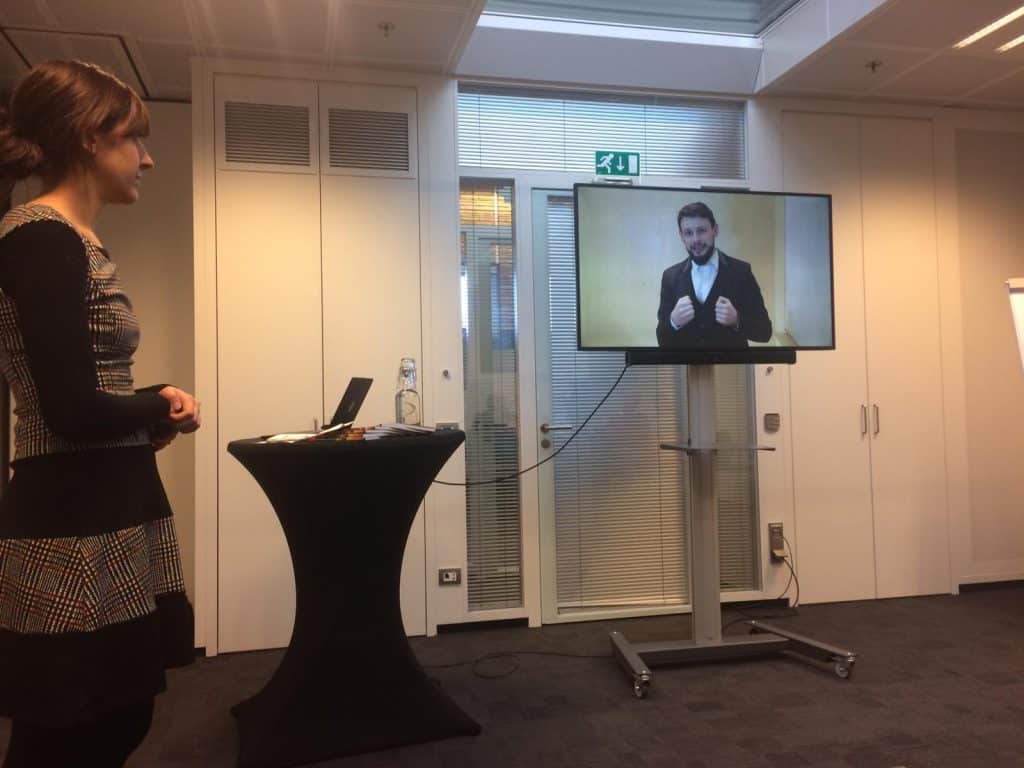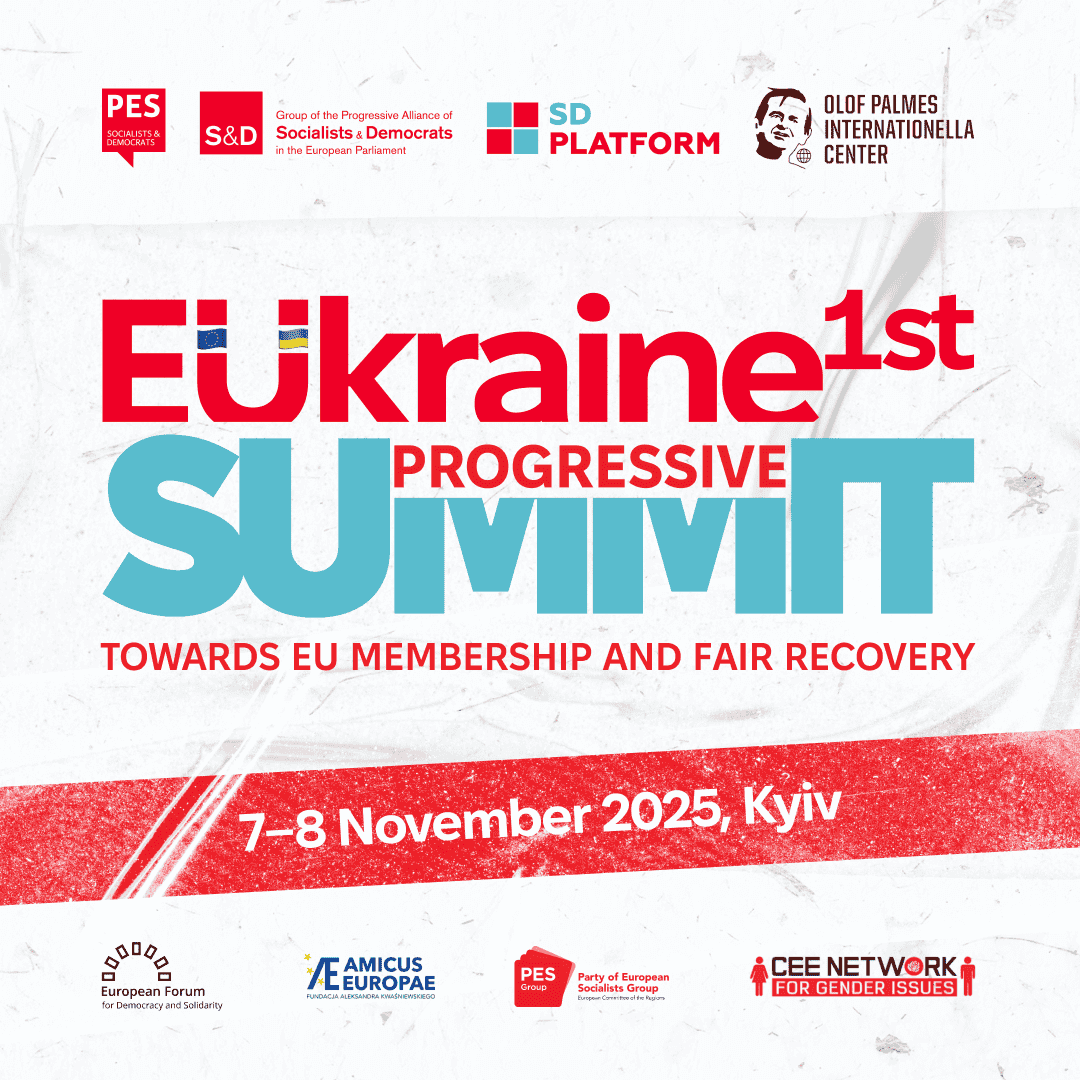No better place than the Labour Party Congress on 19 January in Den Bosch - where the list and programme for the European elections were decided - to draw our attention to the EU's neighbours. Foundation Max van der Stoel therefore organised two workshops in Den Bosch on the security situation in Eastern Europe and on EU enlargement towards the Western Balkans. Bert Koenders, Jan Marinus Wiersma and Albanian Ambassador Adia Sakiqi were our guest speakers!
Ukraine: wartime elections
In the morning, we organised a workshop on the situation in Ukraine. FMS project manager Marina Ohanjanyan gave a brief introduction on what is going on in the country. She focused mainly on the internal political situation, and the election year Ukraine is facing. The country will hold presidential elections in March, and most likely parliamentary elections in October. In between, our local partner, Bohdan Ferens, commented on the events via submitted video clips.
After the presentation, we engaged in a discussion with speakers Jan Marinus Wiersma and Bert Koenders on the implications of all that has happened in Ukraine in recent years. In particular, the discussion focused on the conflict between Ukraine and Russia, and the deteriorating relationship between Russia and the West that ensued. There was a lot of talk about how to deal with Russia. Despite some pessimism regarding democratisation in Eastern Europe, there was a plea to keep talking to Russia, and to continue to encourage Ukraine and the other countries in the Eastern Partnership to democratise as much as possible.
EU: Western Balkans enlargement
Our afternoon workshop addressed the current political situation in the Western Balkans, and Albania in particular. Due to internal challenges (Brexit, polarisation, migration, climate change), European Union expansion towards the Western Balkans has not been high on the agenda. At the same time, an EU perspective is crucial for peace, stability and prosperity in the Western Balkan countries. Moreover, EU integration ensures structural reforms in rule of law and democracy. Croatia joined in 2013, Montenegro and Serbia are in a long process of accession negotiations, Albania and Macedonia hope to open negotiations this summer, while Kosovo and Bosnia are still in the waiting room. EU member states, including the Netherlands, can apply great pressure for reforms during the accession process and have the veto right to stop the process.
After a brief overview of the political situation in the Western Balkan countries, we engaged in a conversation with Albanian Ambassador Adia Sakiqi - who has inherited a Flemish accent from her studies in Bruges - about perceptions in the Netherlands about the country. Indeed, the image is often defined by reports of crime and corruption while the country has made a huge transition after the collapse of Enver Hoxha's Stalinist regime. Democratic elections and smooth changes of power and young people and women are ruling many institutions and businesses. That the country has huge potential in the field of tourism has also been discovered by Transavia by offering direct flights to Tirana. According to Sakiqi, Albania faces major reforms, for instance in the field of justice, and EU accession prospects are crucial to implement reforms and strengthen democratic culture. Opening negotiations gives EU the most leverage to influence developments in a strategically important region where major powers pursue their interests. What Sakiqi misses most about Albania? The spontaneity. In the Netherlands, you have to make an appointment with everyone in advance, but in Albania, you can call each other in the morning and see each other in the afternoon.




